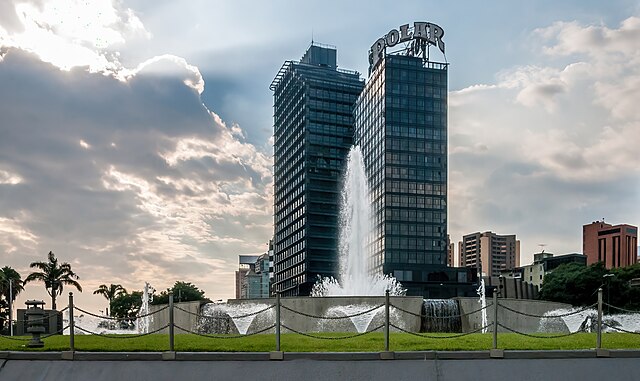The economy of Venezuela is based primarily on petroleum. Venezuela is the 25th largest producer of oil in the world and the 8th largest member of OPEC. Venezuela also manufactures and exports heavy industry products such as steel, aluminum, and cement. Other notable manufacturing includes electronics and automobiles as well as beverages and foodstuffs. Agriculture in Venezuela accounts for approximately 4.7% of GDP, 7.3% of the labor force and at least one-fourth of Venezuela's land area. Venezuela exports rice, corn, fish, tropical fruit, coffee, pork and beef. Venezuela has an estimated US$14.3 trillion worth of natural resources and is not self-sufficient in most areas of agriculture. Exports accounted for 16.7% of GDP and petroleum products accounted for about 95% of those exports.
Plaza Venezuela in Caracas
An opposition protester during the 2014 Venezuelan protests holding a sign saying: "I protest for the scarcity. Where can we get these?"
Shortages in Venezuela of food staples and basic necessities occurred throughout Venezuela's history. Scarcity became more widespread following the enactment of price controls and other policies under the government of Hugo Chávez and exacerbated by the policy of withholding United States dollars from importers under the government of Nicolás Maduro. The severity of the shortages led to the largest refugee crisis ever recorded in the Americas.
Image: Venezuelan eating from garbage
Image: Escasez en Venezuela, Central Madeirense 8
Image: People lines in Venezuela
Shelves filled with the same type of product.






